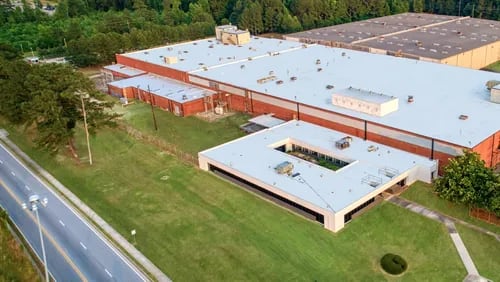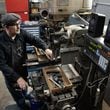Material recycling startup Battery Resourcers will open a big lithium-ion battery recycling facility just down the road from a large electric vehicle plant that Rivian plans to build east of Atlanta.
Gov. Brian Kemp said Wednesday that Worcester, Massachusetts-based Battery Resourcers is investing $43 million to renovate an existing facility in Covington. Once fully operational, the 154,000-square-foot plant will bring at least 150 jobs to the Newton County area, according to the governor’s office and the company.
It will be North America’s largest battery recycling plant when it opens in August, the company said in a press release, capable of processing 30,000 tons of discarded lithium-ion battery materials and scrap each year.
With Rivian coming to Georgia and battery maker SK Innovation building a plant in nearby Commerce, the facility is the latest move to grow an ecosystem in the state centered around the production of electric vehicles, or EVs, part of a global transition away from gas-powered automobiles that is underway.
“This is just the latest job creator to move to Georgia because of our leadership position in the electric vehicle manufacturing space,” Kemp said in a press release.
Battery Resourcers made its decision to come to Georgia before the Rivian deal became public last month, and it was not part of same recruitment effort that successfully wooed Rivian, a spokesperson with the Georgia Department of Economic Development said. Rivian plans to start construction this summer.
Both companies declined to comment on whether Rivian’s batteries will be recycled at the Battery Resources facility.
However, Battery Resourcers vice president of marketing and government relations Roger Lin said the Newton County facility was selected because of “strategic reasons” and did not rule out the possibility that the companies could work together.
Rechargeable lithium-ion batteries are used to power most EVs on the market today, as well as in electronic devices like cell phones and laptops. Recycling the batteries used in electric vehicles — some of which can weigh around 1,000 pounds — will be the primary focus of the new Georgia plant.
The batteries require scarce and valuable materials like lithium, cobalt and nickel, the extraction of which has been linked to significant pollution and human rights concerns, even as electric vehicles help curb carbon dioxide emissions that are warming the planet.
Jeffrey Spangenberger, the director of the ReCell center, a consortium of laboratories that works to advance recycling technologies, said that as more EVs hit the road, the development of new techniques and markets for battery recycling is critical to reducing their environmental impact.
“It’s important that we make the benefits of recycling as great as possible in order to make this net (environmental) gain as big as it can be,” he said.
About the Author







